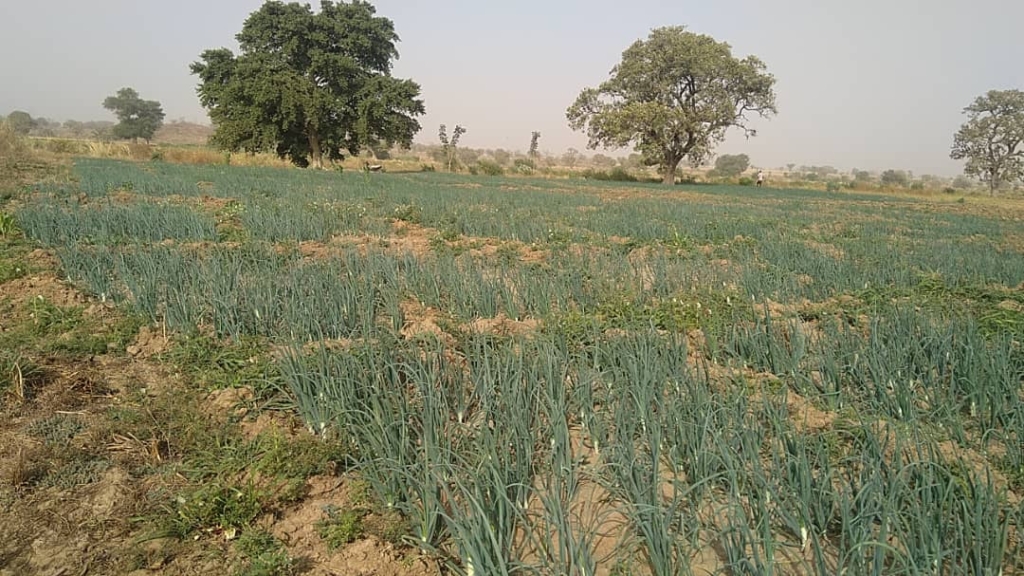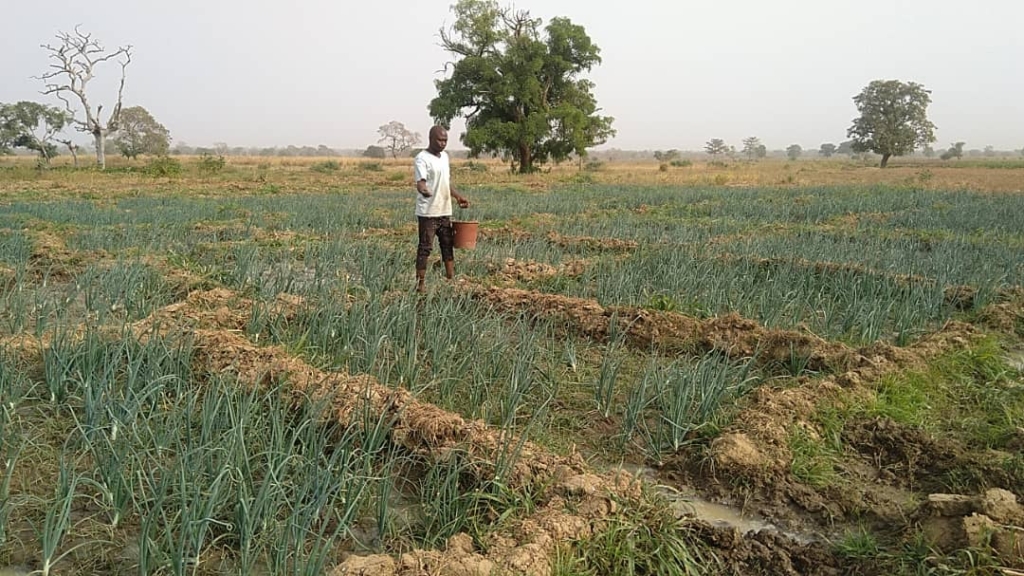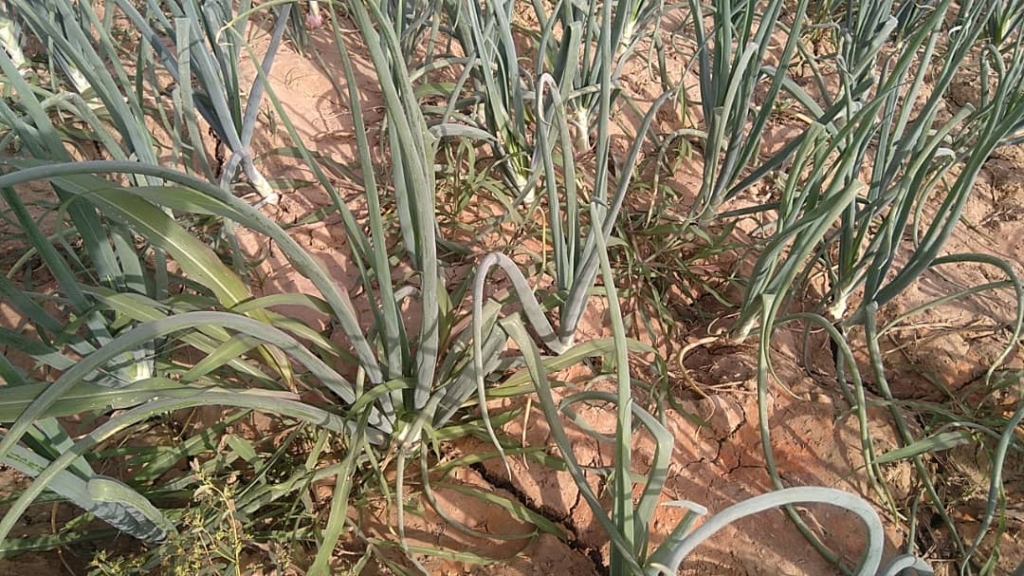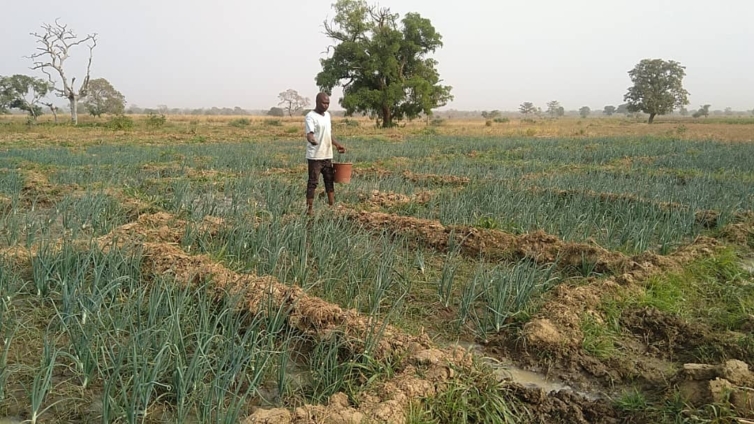They often say that losing your food is akin to losing your life. This holds true when your right to the food you've cultivated over many years is taken away as well.
Between 2007 and 2010, I frequently travelled to Niger for business reasons. This was the same place my mother conducted business when I was attending basic school in my hometown, Bawku. She used to transport onions from Galmi each time she visited.
When I joined her in this venture, I transported items such as Gari, yams, and wood. These goods were quite valuable; for example, a single yam tuber cost 1000 francs at the time. Gari was in high demand but couldn't reach Niamey, Niger's capital, due to its scarcity. Sales occurred mostly in communities near Torodi, located 50 km east of the Burkina Faso border.
People would eagerly purchase all items from the truck within hours. If the demand for onions was high in Ghana, I'd return with a truck loaded with onions. However, during times of weak demand, I'd return empty. To ensure security along the Niger-Burkina Faso route, our sales were sent back to Ghana through an agent.
The most crucial commodity we brought from Niger to Ghana was their signature onion – the Onion Violet De Galmi. This was a crop of great significance to the people of Galmi, cherished across generations.

I traversed the Niamey-Galmi route multiple times to procure the Onion Violet De Galmi. This village lay 500 kilometres east of Niamey, along the east-west highway between Birnin Konni and Maradi. Situated in the arid Ader Valley of Southeast Niger, it existed on the Sahara Desert's southern fringes.
Characterized by a dry, rocky landscape, this unique onion variety boasted a rich history, believed to have been cultivated and passed down for over a century. Known for its delightful taste, this pinkish-purple onion gained popularity in other African countries too. With its robust, flat bulbs, it was an ideal choice for short-day cultivation.
Over the course of three years of consistent journeys to Galmi to aid my mother in procuring these onions, the farmers remained steadfast in their approach to selling the harvest. Whenever the onions remained in the fields, my mother had the option to visit and inspect them. This necessitated her riding on a motorbike to reach the farm, which was occasionally situated at a distance from the surrounding communities.
I had never set eyes on their farms, nor did I know their exact location. Nevertheless, I frequented the community numerous times. Our role was to await the farmers' return with the harvested produce.
At times, they would decide to raise prices based on information received from Ghana regarding increased onion prices. For example, if the price was initially set at 500 francs, they might later inform us that prices had risen to 700 francs. We were left with the choice of agreeing to the new price or facing delays in the return of our sacks. I observed several instances of this in Galmi.
During periods of heightened demand, prices could surge at least twice a day. They disregarded any prior pricing agreements, making abrupt changes once their decisions were made.

Occasionally, there were instances of price reductions, though these occurrences were uncommon. However, even when such reductions did take place, the implementation lacked the immediacy seen when prices rose. Farmers displayed hesitance in lowering prices. This pattern is frequently observed in Africa, particularly within the West African Sub-region.
One admirable aspect of these onion farmers was their mutual support. They stood united to ensure that everyone benefited from price increases. New prices were communicated to all farmers, impacting every onion buyer in the area.
Another noteworthy point was that these sweet onions were low in sulfur and rich in water, resulting in a mild flavour suitable for raw consumption. Thus, it was common to witness people consuming them either raw or roasted, a prevalent practice in the various parts of Niger I visited.
I recall a particular day when I chose to sit atop a long truck, surrounded by the goods we had purchased from Galmi. My companion, a Nigerien, spent the entire journey eating raw onions. This experience allowed me to appreciate the landscape and dry regions more clearly. It was an exhausting but enlightening journey, one I had always desired to undertake to gain insights into different places, people, and lives. Sadly, I wasn't a journalist during those days, and I lacked the necessary equipment to capture images and videos. This compelled me to plan a return trip in September, which coincided with the emergence of security concerns.
The theft of farmer's authentic rights
Whenever someone monopolizes a particular food crop, or attempts to do so, competitors inevitably arise. For centuries, the Nigeriens safeguarded their food resources.
The Violet de Galmi red onion variety originated in the village of Galmi, a small community in Niger, around 500 kilometres east of Niamey, near the Nigerien border. This onion had been cultivated for over a century, known for its strong flavour and substantial bulbs. Thanks to the extensive informal Hausa trading network, it gained popularity throughout West Africa.
The 'Violet de Galmi' onion, originating from Niger, holds immense popularity, not only within Niger where it derives its name from a village in the southwestern part of the country, but also throughout West Africa.

For centuries, ever since their introduction to the region from Egypt, these reddish-purple onions have garnered widespread acclaim for their bold flavour and remarkable storage capabilities - they remain preserved even during months of hot weather.
In the 1990s, the 'violet de Galmi' rose to prominence beyond local domestic economies, emerging as Niger's second most crucial export item, following uranium. Consequently, Niger claimed the title of the largest onion exporter in the entire region. As a result, any claim to ownership of this variety would carry significant weight, and such a situation has recently unfolded.
Following its success in farmers' fields, public researchers further cultivated the onion during the 1960s. Subsequently, in the 1990s, a private seed company based in Senegal, Tropicasem - an affiliate of the French seed enterprise Technisem - continued its cultivation with the intention of exclusive marketing. Eventually, the company pursued a Plant Variety Certificate from the OAPI (African Intellectual Property Organization), asserting ownership over the popular onion.
This effort resulted in exclusive ownership rights across all OAPI member states. Moreover, thanks to a FAO initiative leading to a shared seed marketing catalogue in West Africa, Tropicasem secured exclusive marketing rights for the onion in nine countries.
Triumph against the piracy of local onion farmers
Although seed companies sell packaged seeds of this variety in the USA, India, and Southeast Asia, in the 1990s, a private seed company in Senegal called Tropicasem, a subsidiary of the French firm Technisem, further developed the Violet de Galmi onion.
They obtained exclusive marketing rights for nine West African countries. When Niger's farmers learned of this, they protested, seeking government intervention against this case of biopiracy. The farmers emerged victorious, highlighting how monopolies can extend beyond seeds.
Additionally, large-scale commercial onion farmers and traders affected by this situation were concerned about protecting the 'violet de Galmi' onion. They applied for a geographical indication (GI), a form of intellectual property linked to a production location.
This meant that although the 'violet de Galmi' onion spread across West Africa, only farmers from the Galmi region could use this name for selling. So far, this hasn't significantly affected small-scale farmers due to lax enforcement of the law.
Galmi's onion farmers realized that the best way to defend seeds and the practices preserving them was to keep growing, tending, and exchanging them within their localities. Maintaining their farming systems was the key to seed preservation. Various groups organized seed fairs, food festivals, seed exchanges, and community seed breeding processes to protect and reactivate local markets.
Today, the Onion Violet De Galmi has become essential for many Ghanaians, leading to the annual transport of thousands of trucks loaded with this precious commodity. This success can be attributed to the foresight of certain individuals who ensured the preservation of their ancestral heritage.
Revenue Generated from the export of onion
Niger exported onions and shallots, either fresh or chilled, valued at US$ 23,452.22 million. According to data from the Observatory of Economic Complexity (OEC) for 2021, Niger exported onions worth $23.4 million, ranking it as the 31st largest global exporter of onions.
In the same year, onions were Niger's sixth most exported product. Leading destinations for Niger's onion exports were Ghana ($21.7 million), Cote d'Ivoire ($1.15 million), Benin ($451,000), Togo ($84,500), and Nigeria ($35,100).
The fastest-growing export markets for Niger's onions between 2020 and 2021 were Ghana ($7.8 million), Benin ($344,000), and Togo ($55,500).
Figures from the Selina Wamucii platform, a buying and selling platform, indicate that retail prices for Niger onions in August range from $1 to $2 per kilogram or $0.45 to $0.91 per pound.
In the West African CFA franc zone, retail onion prices in Niamey and Zinder range between XOF 609.76 and XOF 1219.51 per kilogram or between XOF 276.53 and XOF 553.07 per pound.
In 2023, the estimated wholesale price range for Niger onions lies between $0.7 and $1.4 per kilogram or $0.32 and $0.63 per pound.
Latest Stories
-
‘When the lights go off, people must move’ – Energy Minister warns ECG over ‘unacceptable’ delays
15 minutes -
Energy Minister faults ECGs communication breakdown, calls for overhaul in customer service
46 minutes -
‘We inherited a crisis’ – Energy Minister pins load shedding on NPP administration
1 hour -
‘I know it’s not easy, but I’m not here to complain’ – Energy Minister vows to fix power woes
2 hours -
‘When the lights go out, so does public patience’ – Energy Minister admits fault, promises fix
2 hours -
Youth urged to take advantage of opportunities in rice value chain
3 hours -
‘I cannot accept that lights go off when it rains; that makes no sense,’ – Energy Minister
5 hours -
Apple referred for possible criminal contempt investigation
6 hours -
Sinner considered quitting during doping case
6 hours -
BoG is not injecting significant amount of dollars to support cedis stability – Dr Johnson Asiama
6 hours -
Court remands four into NACOC’s custody for alleged cocaine smuggling
7 hours -
Warmest day of year as UK temperature hits 24.9C
7 hours -
David Ofosu-Dorte challenges VRA to ignite Ghana’s industrial future
7 hours -
Sahel Confederation hails Morocco’s non-interference and economic lifeline
7 hours -
Man accused of double murder admits killing one man
7 hours

